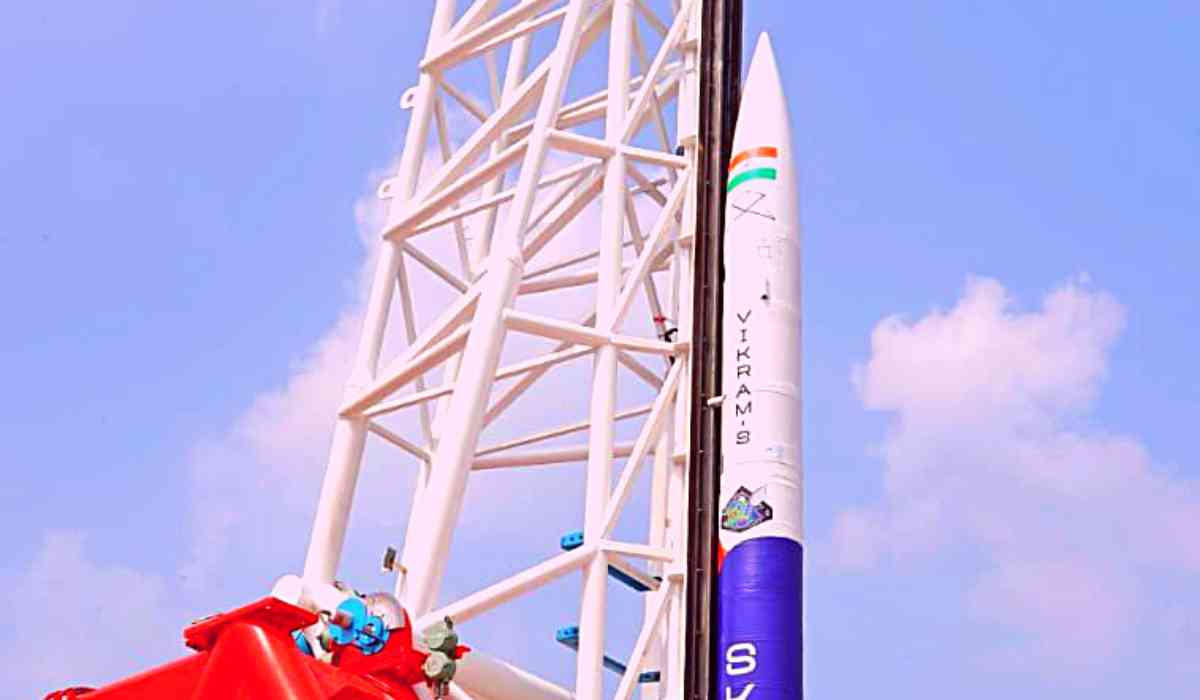India on Friday, witnessed the launch of the first private rocket in the history of ISRO (Indian Space Research Organization). An Indian Space tech startup named Skyroot Aerospace launched The Vikram-S rocket, one of the first of the Vikram series. The spacecraft was launched successfully from the ISRO spaceport in Sriharikota, Andhra Pradesh.
Skyroot Aerospace is a Kondapur (Telangana) based space tech startup, started by former ISRO scientists Pawan Kumar Chandana (31) and Naga Bharat Daka (32) in the year 2018. Since its foundation, the firm has raised over $68 million in funding, to date.
Vikram-S was a single-stage solid fuel sub-orbital launch vehicle, meant to put most systems and subsystems in Skyroot Aerospace vehicle to the test, during the pre-lift off and post-lift off phases of the launch. The spacecraft carried 3 customer satellites (2 Indian and 1 foreign) into sun-synchronous polar orbits.
The name Vikram was chosen in honour of award-winning Indian physicist Vikram Sarabhai, who is also known as the founder of the Indian Space Program. He also had a tremendous contribution to developing nuclear power in India.
It was one of the world's first few all-composite rockets with 3D-printed solid fuel thrusters and an upgradeable core structure. According to Skyroot authorities, it is one of the cheapest rockets ever built in this category, globally. Most of the core components were made of carbon fibre, and a team of over 200 engineers built the rocket in a record time span of 2 years.
The 3-d printed engine was named Kalam-80, in honour of the former president of India, APJ Abdul Kalam. The mission was named “Mission Prarambh” (meaning the beginning). Signifying that the mission is the first in a series of launches, planned to be conducted in the coming years.
The launch on Friday, was sub-orbital in nature, meaning the velocity of the spacecraft was slower than that of an orbital space flight. When the spacecraft reached outer space, it wasn’t designed to stay in orbit.
During the Mission, the Vikram-S rocket soared at 85.9 km above sea level, reaching a maximum altitude of 101km, and a maximum velocity of Mach 5. The spacecraft reentered earth’s atmosphere and splashed into the Bay of Bengal 5 minutes after launch.
In light of the successful launch conducted on Friday, the private space tech startup has scheduled the launch of Vikram-1 sometime in the next year. The launch came as a new dawn on the horizon of the Indian Space Program and is one of the first victories in the process of Indigenization of Indian Space Technology and Space Research. Many more such victories are expected to come in the following years.
© Vygr Media Private Limited 2022. All Rights Reserved.
























